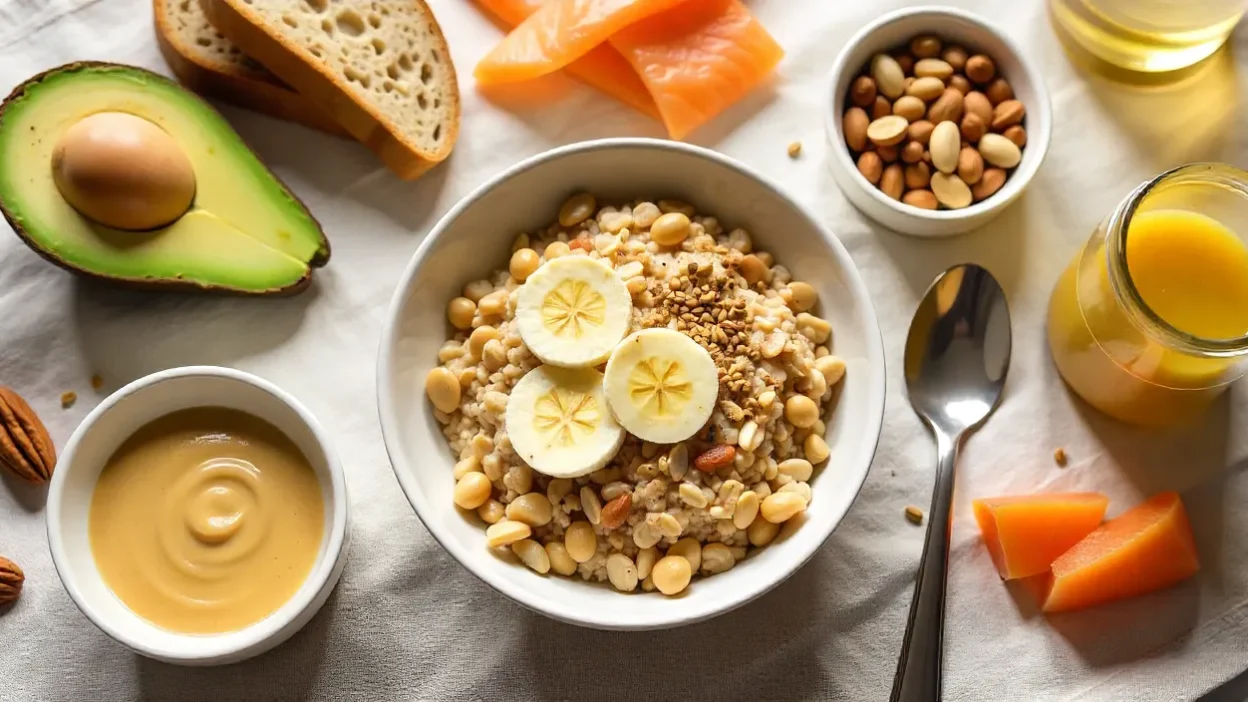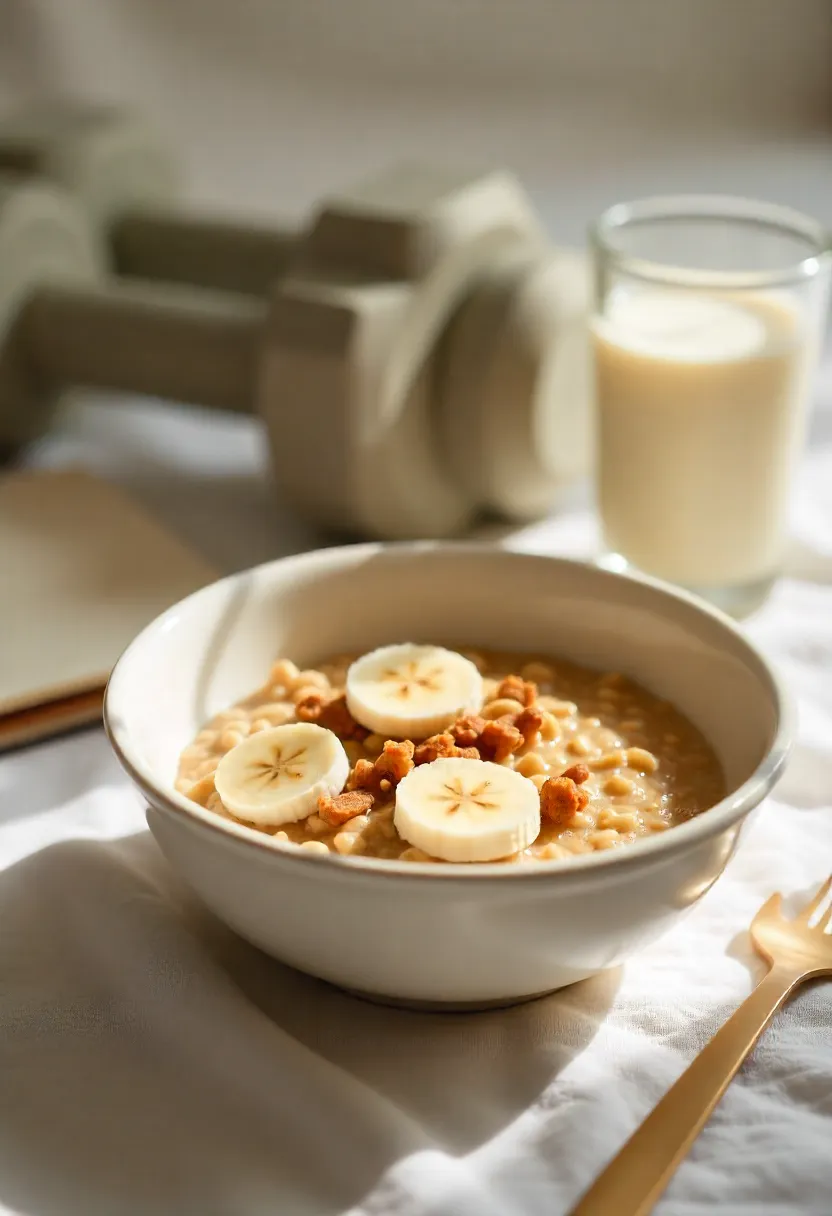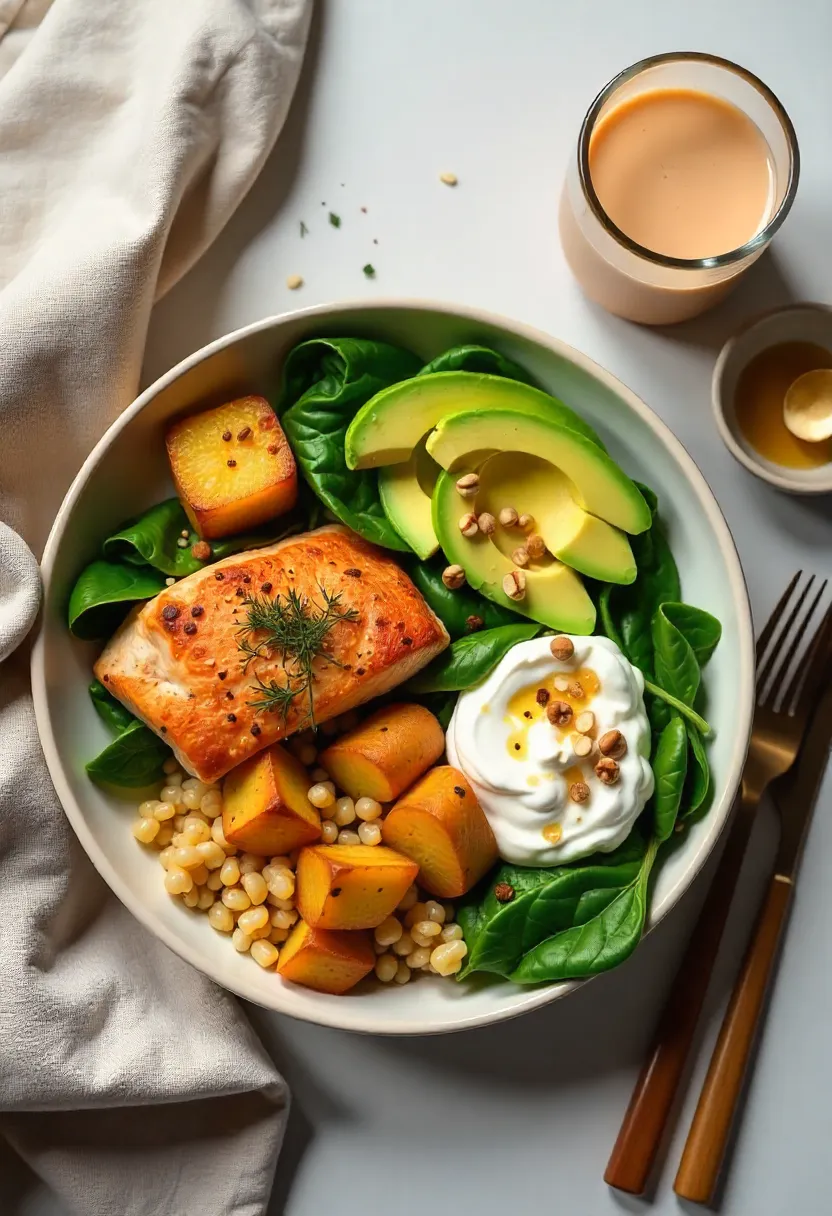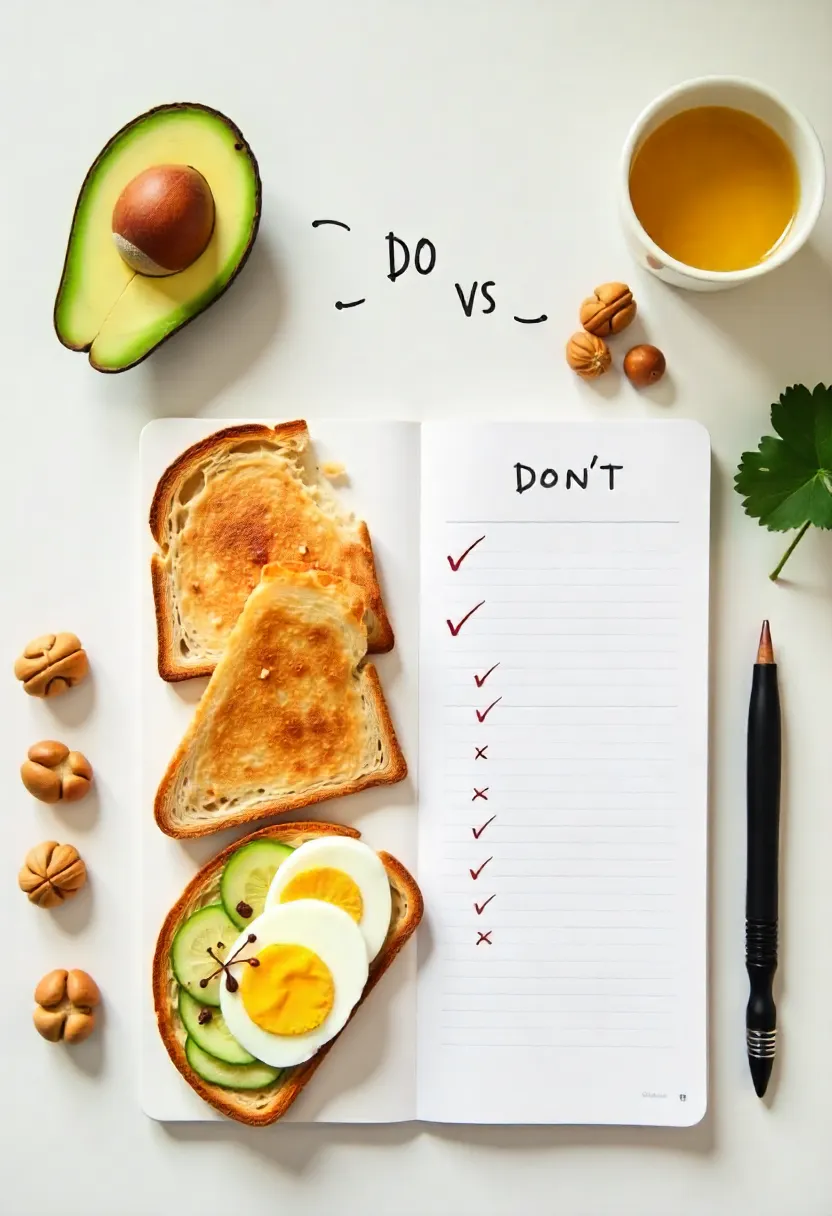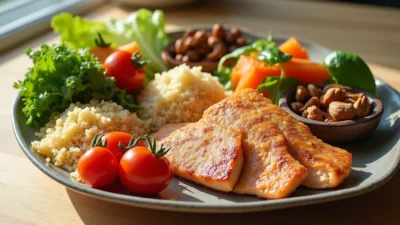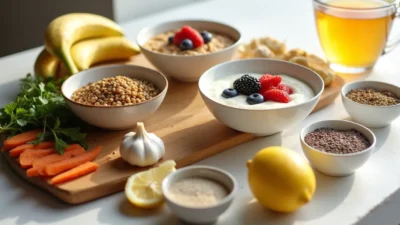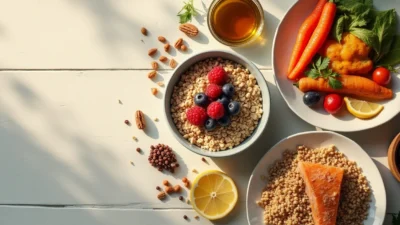Contents
- Why Gaining Weight Matters & What Affects It
- Nutrition Fundamentals for Healthy Weight Gain
- Foods & Meal Ideas to Support Healthy Weight Gain
- Training & Lifestyle Tips to Build Muscle & Support Weight Gain
- Common Mistakes & How to Avoid Them
- When to Consider Professional Support
- Conclusion — Grow Stronger, Nourished & Confident
When the world talks about health and body goals, weight loss often steals the spotlight. But for many people, the challenge looks very different: gaining weight in a healthy, nourishing, confident way. And yes — it can be just as difficult as losing it.
Maybe you’ve always had a fast metabolism.
Maybe stress, illness, or appetite changes affected your weight.
Or perhaps you simply want to build more strength, curves, and energy — not just see a higher number on the scale, but feel fuller, stronger, and more supported inside your body.
Healthy weight gain isn’t about stuffing yourself with junk food or eating until you’re uncomfortable. It’s about balanced nutrition, muscle-focused training, smart calorie increases, and daily routines that help your body thrive. As BBC Good Food highlights in its expert-led guide, the most effective weight gain strategies are steady, intentional, and deeply nourishing.
In this article, we’ll explore how to:
- Increase calories in a healthy, satisfying way
- Choose foods that help build muscle, not just “add weight”
- Support digestion, appetite, and energy
- Create habits that encourage strong, sustainable growth
Whether your goal is to fill out your frame, gain muscle tone, recover after illness, or simply feel more grounded in your body, you deserve a plan that feels encouraging — not overwhelming.
Let’s build strength, gently and intentionally — one nourishing meal and one powerful workout at a time. 💪🥑🍚
Why Gaining Weight Matters & What Affects It
Gaining weight isn’t just about aesthetics — it’s about strength, energy, and resilience. Your body needs enough fuel to build muscle, support hormones, maintain brain function, and power you through daily life. When weight is too low, even simple tasks can feel draining, recovery is slower, appetite feels unpredictable, and mood and immunity may take a hit.
Healthy weight gain is often a journey toward feeling more like yourself — grounded, nourished, capable, and strong.
But here’s the truth: gaining weight isn’t always as simple as “just eat more.” Several factors can make it challenging:
Metabolism & genetics
Some people naturally burn energy faster. It’s not lack of effort — it’s biology working at high speed.
Activity levels
If you walk a lot, train often, or have an active lifestyle or job, your body uses more calories daily.
Appetite and digestion
Stress, certain health conditions, or simply having a naturally smaller appetite can make eating enough feel hard.
Training habits
Lifting weights tells the body, “We need muscle here.” Without resistance training, extra calories are harder to convert into strength.
Recovery & sleep
Muscle grows during rest, not in the gym. Poor sleep or chronic fatigue makes it harder to build mass.
When nutrition, movement, and recovery align, the body feels safe enough to grow. Weight gain becomes less about force and more about support — giving your body what it’s been asking for all along.
Up next, we’ll break down the nutrition fundamentals that make healthy weight gain not only possible, but enjoyable and sustainable. 🍠🥛💪
Nutrition Fundamentals for Healthy Weight Gain
Healthy weight gain isn’t a free-for-all — it’s a strategy. And the heart of that strategy is eating in a way that gently tips the scale toward growth while still nourishing your body with quality ingredients.
Yes, you need more calories.
But what those calories are made of matters just as much as the number.
Prioritize balanced macronutrients
Each macronutrient plays a role in weight gain:
- Protein builds muscle tissue
Think: eggs, chicken, fish, Greek yogurt, tofu, beans - Carbohydrates fuel your workouts and help support muscle repair
Think: rice, oats, potatoes, pasta, quinoa, whole-grain bread - Healthy fats add calories comfortably and support hormones
Think: nut butter, olive oil, avocado, seeds, full-fat dairy
Protein gives structure, carbs give energy, and fats make sure you’re getting enough fuel without feeling overwhelmed by volume.
Eat more often — and make calories count
If you struggle with appetite or feel full quickly, three giant meals may not work. Smaller meals plus snacks can feel gentler and more achievable:
A smoothie with nut butter, banana, oats, and milk can be a powerful “easy calories” win.
Liquid calories help
They digest easily and don’t overstimulate appetite signals. Perfect when your goal is to increase intake without force.
Try: protein smoothie, kefir shakes, whole-milk lattes, homemade chocolate milk with protein.
Don’t fear calorie-dense additions
A drizzle of olive oil, extra cheese, spoonful of pesto, tahini on veggies, nuts on oatmeal — these little additions can add 200–300 calories a day without extra volume.
Micronutrients matter too
Iron, zinc, B vitamins, calcium, magnesium — they all support metabolism and muscle function. A colorful plate helps ensure your body has the tools to grow.
Healthy weight gain isn’t about “eating anything” — it’s about fueling your body to build.
Think deliberate, nourishing, steady, not chaotic or rushed. One satisfying meal at a time.
Next, we’ll explore specific foods and meal ideas to help you gain weight without stress — and enjoy the process. 🍳🍚🥑
Foods & Meal Ideas to Support Healthy Weight Gain
When your goal is to gain weight, food becomes your ally — not something to force, but something to enjoy and build strength with. The best choices are satisfying, flavorful, and nutrient-dense, helping you add calories without feeling stuffed or sluggish.
Rather than eating “more of everything,” focus on high-quality, energy-dense foods that give you both fuel and nutrients.
Protein-Rich Staples
Protein is your muscle-building foundation. Aim to include it at each meal.
- Chicken or turkey
- Salmon or tuna
- Eggs (soft-boiled, scrambled, poached — all work)
- Greek yogurt or cottage cheese
- Tofu, tempeh, beans, lentils
Meal idea:
Creamy scrambled eggs with whole-grain toast, avocado, and cherry tomatoes.
Carbohydrates That Stick With You
Carbs help you train harder and recover better — essential for healthy gains.
- Brown rice, couscous, quinoa
- Potatoes or sweet potatoes
- Oats & whole-grain pasta
- Whole-grain breads & wraps
Meal idea:
Bowl of rice, roasted chicken, olive oil-dressed greens, and salted sweet potatoes.
Healthy Fats = Easy Calories
Healthy fats are calorie-dense and great for those who get full quickly.
- Avocado
- Olive oil & pesto
- Peanut butter, almond butter, tahini
- Nuts & seeds
- Full-fat milk, yogurt, cheese
Quick snack idea:
Greek yogurt bowl with honey, walnuts, banana, and a spoon of peanut butter.
Smoothies — Your Secret Weapon
When appetite is low, smoothies make gaining easier.
Try blending:
milk or kefir + banana + oats + nut butter + whey or plant protein + cinnamon
Creamy, comforting, calorie-rich — without feeling heavy.
Comforting Dinner Idea
Pasta with pesto, chicken or salmon, cherry tomatoes, and a sprinkle of parmesan — nourishing, filling, and delicious.
Training & Lifestyle Tips to Build Muscle & Support Weight Gain
Food gives your body the raw materials to grow — but movement tells it what to build. If you only increase calories without stimulating the muscles, your body has no signal to turn that nutrition into strength. That’s why resistance training is a core pillar of healthy weight gain.
The goal isn’t to “burn calories.”
It’s to stimulate muscle fibers, improve appetite, and support balanced weight gain.
Prioritize Strength Training
Aim for resistance-based workouts 3–4 times per week:
- Dumbbells or barbells
- Bodyweight exercises (push-ups, squats, dips)
- Machines & cable work
- Resistance bands
Think progressive overload — gradually lifting more weight, or adding repetitions or sets. Slow, controlled movements win.
💡 Tip: Full-body routines — squats, deadlifts, rows, push-ups, hip thrusts — support muscle growth and appetite naturally.
Reduce Long, Intense Cardio
Cardio is healthy — but too much can make gaining weight harder. Moderate cardio is fine (walking, cycling, light jogs), but save most of your energy for strength building.
Sleep = Muscle Growth
Muscles don’t grow in the gym — they grow while you rest.
Aim for:
- 7–9 hours of sleep
- Calming nighttime routine
- Slow, deep morning wake-ups instead of rushing
Better sleep = better appetite + stronger recovery + balanced hormones.
Stress & Cortisol Matter
Chronic stress can interfere with appetite, digestion, and muscle growth. Add calm moments:
- Evening herbal tea
- Deep breathing between tasks
- Gentle stretching
- Time outdoors
Strength grows in stillness, too.
Post-Workout Nutrition
Fuel within 1–2 hours of training:
- Protein for repair
- Carbs to refill energy stores
- Healthy fats for hormone balance
Example: chicken & rice bowl with avocado OR a protein smoothie with oats and nut butter.
Common Mistakes & How to Avoid Them
Healthy weight gain is a skill — and like any skill, there are a few traps that can slow progress or make the journey frustrating. Most people trying to gain weight don’t lack effort; they just need clearer direction and gentler structure.
Here are the mistakes we see most often — and how to sidestep them with confidence.
Mistake 1: Relying on Junk Food for Calories
Yes, fast food and sugary snacks can increase calories — but they don’t build muscle, steady energy, or strong hormones. They often leave you sluggish and under-nourished.
✅ Do instead:
Add calories through wholesome, energy-dense foods like avocado, nut butter, olive oil, salmon, whole grains, and dairy. Eat more — not worse.
Mistake 2: Only Eating Huge Meals
Trying to “force feed” yourself at lunch or dinner usually backfires — you feel overstuffed, uncomfortable, then under-eat later.
✅ Do instead:
Eat 4–6 smaller meals/snacks a day and add calorie “boosters” (olive oil drizzle, nut butter spoon, yogurt on top).
Mistake 3: Ignoring Strength Training
More food without muscle stimulus can lead to soft weight gain rather than lean body mass.
✅ Do instead:
Lift weights consistently. Aim for progressive overload and recovery.
Mistake 4: Not Eating Enough Protein
Muscle needs building blocks — carbs give energy, but protein builds shape and strength.
✅ Do instead:
Add protein to every meal: eggs, meat, dairy, beans, tofu, protein shakes.
Mistake 5: Skipping Micronutrients
Iron, B-vitamins, magnesium, and zinc help metabolism and energy production — without them, weight gain can stall or feel exhausting.
✅ Do instead:
Eat colorful meals — fruit, veggies, herbs, whole grains, nuts, seeds.
Mistake 6: Expecting Instant Results
Just like healthy fat-loss takes time, building lean, lasting mass does too. You might not “see” changes right away — but your body feels them first.
✅ Do instead:
Think in weeks and months, not days. Track strength, appetite, and energy — not just the scale.
Healthy weight gain isn’t sloppy or rushed — it’s intentional, nourishing, and steady. When you avoid these common pitfalls, your body feels safe enough to transform.
When to Consider Professional Support
Most people can gain weight with consistent nutrition, strength training, and gentle lifestyle shifts — but sometimes, the body needs deeper attention, and that’s not a failure. It’s wisdom. Your body is communicating, and seeking guidance is a smart, caring response.
If you’ve been eating more, lifting regularly, resting well, and still struggle to gain weight — or continue losing it — it may be time to check in with a healthcare professional.
You may benefit from support if you experience:
- Unexplained weight loss
- Very low appetite despite effort
- Digestive issues like chronic diarrhea, bloating, or discomfort
- Fatigue or weakness that doesn’t match activity level
- Frequent illnesses or lowered immunity
- A feeling that your body is fighting weight gain
Medical reasons may include:
- Thyroid imbalance
- Malabsorption issues (e.g., celiac, IBD)
- Gut microbiome disturbances
- Hormonal imbalances
- Chronic stress or anxiety affecting appetite
- Recovery from illness or surgery
A dietitian can help tailor a nutrition plan that works for your lifestyle, appetite, and taste preferences. A doctor can rule out underlying issues. A trainer can help design muscle-focused workouts to ensure gains come from strength, not strain.
Reaching out doesn’t mean you “can’t do it on your own” — it means you’re partnering with your body and giving it the respect and attention it deserves.
Strength is not only built in the gym —
sometimes it’s built in the courage to ask for support. 💛💪🌾
Conclusion — Grow Stronger, Nourished & Confident
Gaining weight in a healthy, intentional way isn’t about eating endlessly or rushing results — it’s about feeding your body with care, building strength with purpose, and letting growth unfold steadily.
Your journey isn’t defined by the scale alone.
It’s reflected in:
- More energy in your mornings
- Steadier mood and appetite
- Growing strength and stamina
- Clothes fitting with confidence and comfort
- Muscles waking up and shaping your frame
- A body that feels supported, not pushed
Each nourishing meal, each workout rep, each deep breath before sleep contributes to a body that feels more alive, resilient, and grounded.
There will be days when appetite feels low or progress feels slow — and that’s okay. Progress isn’t linear; it’s layered. Keep showing up with patience. Keep adding those healthy fats, lifting those weights, and drinking that recovery shake. Keep resting well and celebrating small wins.
You are not “too light.”
You are simply in a season of building.
And with consistent nourishment, strength-focused movement, and self-kindness, your body will respond — not out of pressure, but because you’re finally giving it what it needs to thrive.

